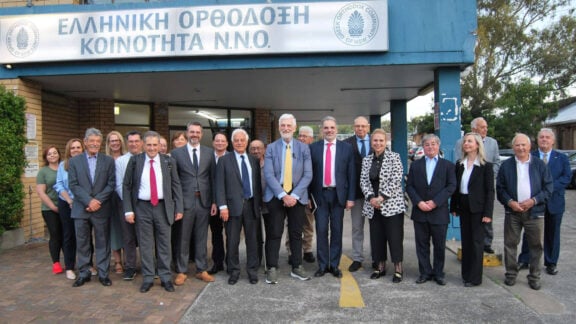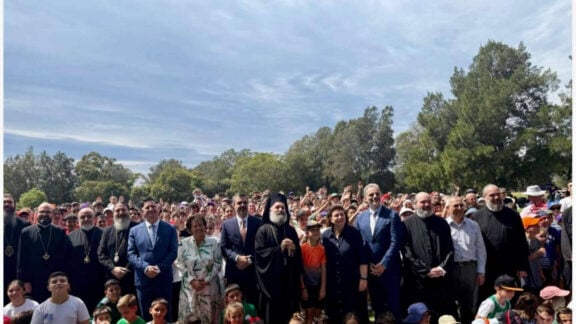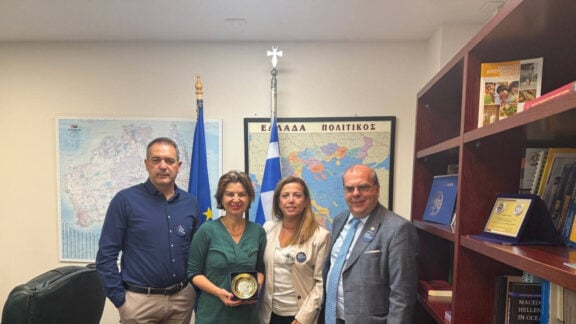Esteban Quintas, the Argentinian coach of South Melbourne, opened up to us about his incredible journey since arriving in Australia in 2016. From his early days coaching the South Melbourne under-16 team, to his experiences with some of the biggest names in football such as Jurgen Klopp, Diego Simeone and Jose Mourinho. Esteban shared his dreams and his opinion on football in Australia and the microcosm of South Melbourne, which he proudly calls the biggest club in the country.
“I arrived in Melbourne in 2016 as the coach of the South Melbourne Under-16 team. It was my first time coaching kids, and I have only positive memories from that experience. The team did amazingly, we beat almost all of our opponents. I worked very hard with these kids, and I think that’s what Andreas Mesourounis saw when he approached me two years later to return to the club as Kostas Tagalakis’s assistant coach,” remembers the Argentinian coach.
“It was a difficult decision. That season I had done amazingly well with my team in Spain and it seemed like a step back to accept the role of an assistant coach. I had offers from Holland and Scotland to take charge of first-class teams, but my lack of proficiency in English somewhat discouraged those clubs. This was also one of the reasons why I finally accepted South Melbourne’s proposal. After talking to my wife and the rest of my family, I realized that by coming here I could, among other things, learn the language better. I honestly thought that I would only stay in beautiful Melbourne for one season, or two at the most” but fate had other plans for the 43-year-old manager.
“When Mr. Tagalakis left our team after 8-9 games, it was a difficult time for me and the team. We faced an uphill struggle to stay in the division and the players were perplexed by my coaching methods. It was a season full of challenges, but we eventually prevailed and stayed in the division. Unfortunately, only 3-4 players from that team remain on the current roster, which meant we had to find new players who could understand my vision of football. Thankfully, the season ended on a positive note and the following year, the arrival of COVID meant I had to stay put, even if I had other plans. The team has come a long way since then and we are now striving to reach higher heights as we continue our journey.”
The Argentine refers to the last season (2021-2022) with pride but also with some bitterness.
“What an incredible season. We were absolutely dominant from the beginning of the season to the end, with the best defence and attack in the league. Despite all that, it’s results that matter in football, and unfortunately, the defeat in the Grand Final wiped our almost perfect season from the memory of the fans. Hellas is a huge team, with an incredible history and the high expectations that come with it. As soon as you set foot here, winning is all anyone talks about, and there’s no time or luxury of not bringing results. People either love or hate Hellas, and when we lose I get hundreds of messages full of criticism and disappointment. But when we win, I only get five or six messages. It takes great mental strength to survive in this historic club and I can confidently say I’ve never experienced such a demand to win as I have here.”
The opinion of the coach born in Mar de Plata about Australian football is absolutely positive.
“The standard of football in Australia is fantastic. Football players are extremely strong and there is a desire for continuous improvement. I love football theory. A few years ago, Dortmund visited the facilities of the team I was coaching during the winter break of the German league. Their coach was Klopp. Watching the training sessions of the German coach, I realized how many gaps I had and how beautiful and rich football theory is. I decided to take a whole season off and spend as much time as possible enriching my knowledge of systems and tactics. I spent a lot of time at the Atletico training ground watching Diego Simeone, I spent time ‘spying’ on Mourinho’s training sessions and also some time at Barcelona’s facilities when Guardiola was their coach.
All this knowledge I am now trying to pass on to my footballers and I am pleasantly surprised by the ability of Australian footballers to understand and also put into practice on the field all these tactics. I’m sure that many of these players will become excellent coaches when they decide to retire.”
His own football career ended when he was only 30 years old.
“I have had a total of four knee operations. When I returned from the last one, my coach put me straight into the starting eleven despite the months of absence behind me. I remember throughout the first half I was struggling to keep up with my opponents. The speed I had was gone; I no longer had the strength to control the ball in the center of the field or chase my opponents from one side of the field to the other. At halftime, I took off my boots, approached the coach, and told him that this was it. I would never play professional football again.”
When we ask him what he thinks about the system under which Australian football operates, he appears straightforward. “How can relegating the biggest clubs in the country to the second division without the possibility of them being promoted to the top level be a good idea? My mind cannot comprehend this misguided A-League venture, as if they are trying to sabotage the sport. We must change this in order for the biggest sport in the world to receive the attention and development it deserves here in Australia.”
He’s not one for daydreaming, but when we ask him to tell us about his dreams, he’s quick to respond.
“I want to win something really big with South Melbourne. The team is like a family to me, I will always be grateful to the management and especially to Mr. Andreas Mesourounis. I want to bring a big trophy and in this way thank them for the trust they have shown in me all these years”
In closing, we ask him to answer a classic Argentinian dilemma – Messi or Maradona?
“Diego without a second thought, I don’t know about the young kids but for my generation and the older ones, Diego is not just a footballer, he is not even a simple hero. He is a god and we adore him, Diego is everything to us Argentinians”









